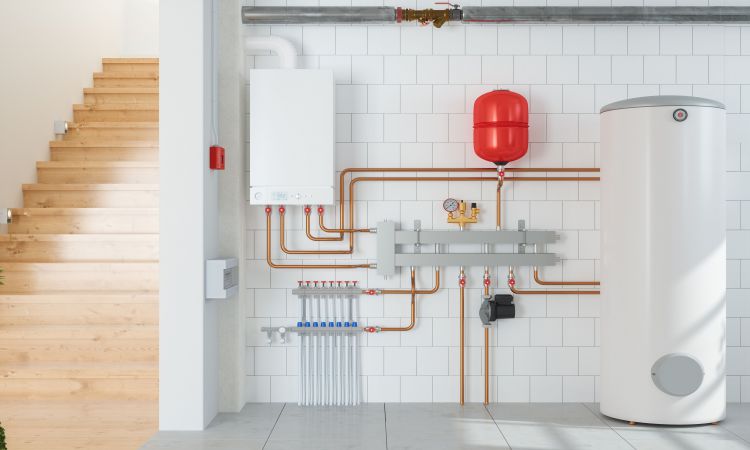 As one of the largest energy consumers, selecting a water heater with the appropriate size, fuel type, and operating efficiency can tremendously affect household costs.
As one of the largest energy consumers, selecting a water heater with the appropriate size, fuel type, and operating efficiency can tremendously affect household costs.
Finding the best unit requires considering several key aspects. This article will go over what factors to keep in mind when choosing a water heater.
Trying to pick the perfect unit? Check out this handy water heater replacement guide for further information.
Table of Contents
Fuel type
The type of fuel your water heater uses is a significant factor that can determine long-term costs and efficiency. The most common fuel options include electricity, natural gas, propane, and solar energy.
Electricity is widely available but can be more expensive in the long run. On the other hand, natural gas and propane are generally less costly and may heat water faster than electric models. If environmental impact and sustainability are your priorities, consider solar water heaters, though be aware they may require a higher initial investment.
Assessing your home’s access to these fuels and your budget will help guide your decision-making process.
Tank or tankless design
When selecting between tank and tankless water heaters, it’s important to weigh both functionality and efficiency.
Traditional tank water heaters store and keep a specified amount of hot water ready, which can be more convenient for large families with high demand. However, they also consume more energy to maintain the water temperature.
In contrast, tankless models heat water directly on demand, providing a continuous supply and potential energy savings. These units are usually more compact and have a longer lifespan but come with a higher upfront cost.
Your household’s usage patterns and space considerations are crucial factors in this decision.
Capacity
Choosing the correct capacity for your water heater is critical to meet your household’s hot water needs without wasting energy. The capacity for traditional tank water heaters is measured in gallons and should align with the peak hourly hot water consumption of your home. Typically, a family of four might require a 40 to 50-gallon tank.
On the other hand, tankless water heaters don’t have capacity measured in gallons, but rather by the flow rate, which is measured in gallons per minute (GPM). You’ll need to calculate the GPM based on the number of devices you expect to use simultaneously and their individual flow rates.
Opting for the right size ensures efficient operation and constant hot water supply.
Budget
Your budget is a decisive factor in choosing a water heater. Initially, more affordable units like conventional tank water heaters may seem attractive, but they can incur higher operating costs over time. Conversely, tankless water heaters and solar-powered options involve a greater initial outlay but often lead to significant savings on your energy bills in the long term.
Additionally, consider potential rebates, tax credits, and the expected lifespan of the unit when calculating overall costs.
It’s essential to balance upfront expenses with future savings to determine the most cost-effective solution for your home.
The best choice can be highly variable
Selecting the right water heater for your home is a complex decision that can have a lasting impact on both your comfort and your finances. By carefully considering fuel type, tank design, capacity, and budget, alongside the long-term operating costs, you’ll be better equipped to choose a system that not only meets your immediate needs but also provides efficiency and reliability for years to come.
Remember to consult with professionals to assess your specific circumstances and to ensure your chosen water heater is installed correctly for optimal performance. With the right research and guidance, you’ll enjoy the satisfaction of a well-made decision each time you turn on the tap for warm water.






